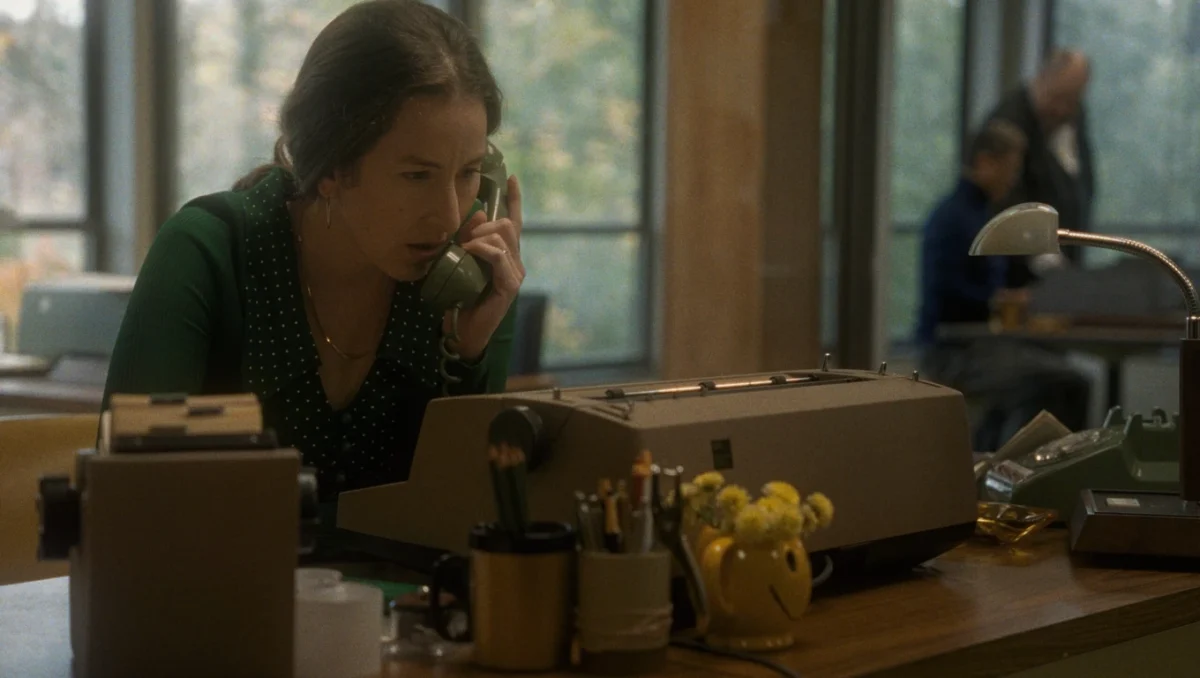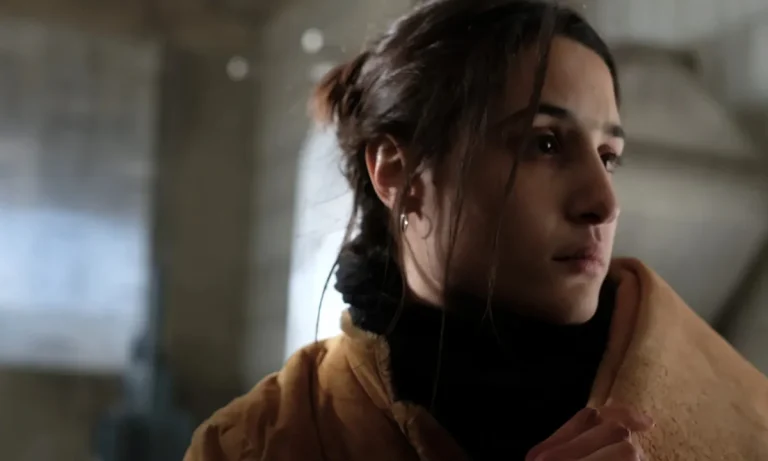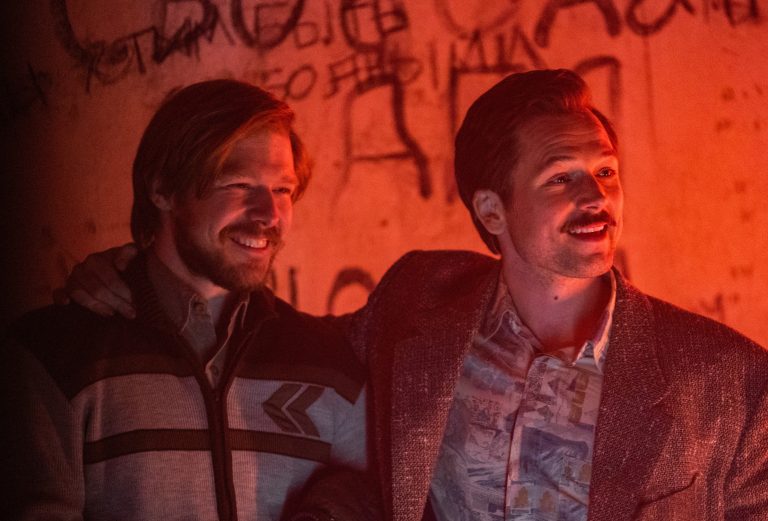One of the most quietly quintessential American directors of our time, Kelly Reichardt has cemented her position on the international festival arthouse scene largely by way of a consistent, unassuming deconstruction of genre. Oftentimes, this comes with an unmistakable feminist slant, at once casual in its presentation and radical in its implication—a point worth noting given Reichardt’s position in a festival scene largely male-dominant—but with “The Mastermind,” the director foregrounds the masculine quest for capital to paint a view of America headed towards its lowest point.
A director who once described her masterful “Meek’s Cutoff” as “A Western from the perspective of the woman who pours John Wayne’s coffee,” there’s no denying that the deconstruction of how different genres uphold masculine power structures are a real point of fascination for Reichardt; westerns, historical dramas, espionage thrillers, road movies—even the story of a struggling artist caring for a wounded pigeon can be viewed as a play on auteurist self-reflection that the male-headed festival scene would adore.
With “The Mastermind,” Reichardt shifts her sights towards her most conventional genre examination yet, but every second of it rings with her usual serenity that underpins a sinister tension at the highest levels of society. Set amidst the backdrop of the Vietnam War, “The Mastermind” finds the UK’s rugged it-boy Josh O’Connor as an unassuming husband and father of two whose regular trips to the art gallery with his family are often underpinned by minuscule, almost imperceptible thefts. This time, though, J.B. Mooney’s patience has paid off as his endless scouting has prepared him to plan the meticulous removal of four abstract paintings from a local Massachusetts gallery.
Naturally, because this is a film, the heist doesn’t go quite as planned, but the ensuing aftermath of J.B.’s imperfect execution comes to be a wedge that permanently affects his family and his own safety. Even with the looming hand of the law on his tail, though, Reichardt views J.B.’s plight in the most loosened manner imaginable, particularly as “The Mastermind” gently places itself within the historical context of its period, where youth-driven protests pepper the scene to remind us all of what was really at stake at this crossroad of America’s dark history.

Also Read: All Kelly Reichardt Films Ranked
A heist film whose central theft is about as breezy and uneventful as one might expect from the genius who last gave us “Showing Up,” “The Mastermind” maintains a softened tension as it consistently flirts with more conventional flash in the face of its criminal enterprise. Reichardt’s editing is typically relaxed as Christopher Blauvelt’s camerawork keeps up the velvety glow we all expect from the director’s oeuvre, but Rob Mazurek’s jazzy score is propulsive and urgent in a way that contrasts wonderfully with the film’s surrounding atmosphere.
The second woman-directed film to compete in Cannes starring Josh O’Connor as a ratty and wayward art thief—take note that Alice Rohrwacher was immediately on-site at the film’s premiere to shower Reichardt with applause as soon as the lights came on—“The Mastermind” puts his somber, towering figure to good use as Reichardt once more examines a figure of masculinity fractured within the fragility of a social structure that shows America at its ugliest.
Distilled through a man whose search for easy wealth and subsequent personal defeat act as a microcosm for what American capitalism does to us all, Reichardt’s vision retains its modestly startling power because the intimacy of her scale, as always, shows just how much the imbalance embedded in Western culture can irrepressibly shake us on even the most individual of scales.
As “The Mastermind” shuffles its way through the motions of a typical theft-gone-awry, it’s Reichardt’s blasé presentation that truly sells the futility of the drive for a petty payday at the cost of everything you hold dear. When you want for everything, in the end, you’re left with nothing, and at a moment in time when a nation of youth was beginning to push back against an imposed purpose, such odysseys, stripped of the glam and meticulous planning of a classic heist thriller, appear even more pathetic and dismal.
Coming at another moment when the United States, and the Western world at large, approaches a new reckoning with its complicity in the atrocities that face the rest of the globe, “The Mastermind”’s distinctive sense of place and time only serve to reinforce Kelly Reichardt’s status as an artistic voice whose whisper moves mountains, even if only for those of us who perk up our ears and lose ourselves in the stillness of her reflection.



![4L (4 Latas) Netflix Review [2019] – A derivative Road Trip](https://79468c92.delivery.rocketcdn.me/wp-content/uploads/2019/07/4-latas-movie-768x317.jpg)

![Reason (Vivek) [2019]: ‘LIFF’ Review – A Brilliant Discourse on the Pernicious Rise of Religious Extremism in India](https://79468c92.delivery.rocketcdn.me/wp-content/uploads/2019/06/Reason-highonfilms-768x494.jpg)
![The Dissident [2020] Review – The Pensive and Fury-Inducing Story of a Slain Journalist](https://79468c92.delivery.rocketcdn.me/wp-content/uploads/2021/01/The-Dissident-2020-768x432.jpg)

